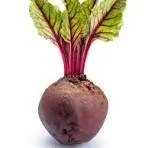Eating for Heart Health - by Naturopathic Doctor Ceilidh Flanagan
Heart ‘beet’
You have likely heard the saying that “the way to a person’s heart is through their stomach”. This actually has more truth to it than most people expect! We can absolutely nourish our heart and cardiovascular system by choosing what and what NOT to put in our bodies.
An often overlooked mechanism for heart health is the nitric oxide system. Nitric oxide is a chemical produced in our body that helps dilate blood vessels, lower blood pressure, and improve athletic performance and recovery (to name just a few of its many benefits). You may know of someone who requires Nitroglycerin - or “Nitro” - for certain cardiovascular diseases such as angina, but you do not need to have angina or Nitroglycerin to reap the benefits of nitric oxide.
Nitric oxide is produced from nitrates, which we can consume from our diet (not to be confused with sodium nitrates which are used as preservatives in deli meat and other processed foods). Bacteria in our mouth are largely involved in the production of nitric oxide, as they break down the nitrates in our food. In fact, studies have shown that those who frequently use antibacterial mouthwash have a significantly higher risk for high blood pressure than those who don’t, due to the decrease in nitric oxide production from our good bacteria. PMID: 23183324
This goes to show that what you don’t put in your body is just as important as what you do!
Foods that can improve our cardiovascular health include many fruits and vegetables. The star of the show in regards to nitric oxide production would have to be BEETS! Beets, and more specifically beetroot juice, have long been used to improve athletic performance and recovery, and we now know that this is largely due to their high concentration of nitrates. As little as 500ml of beet juice before exercise has the ability to significantly improve athletic performance and cardiac output. PMID: 36479475 Drinking 1 cup of beet juice daily for up to 60 days has also been shown to reduce blood pressure in those struggling with hypertension. PMID: 35369064
Other foods high in nitrates include: coriander, celery, spinach, lettuce, watercress, arugula, radish, and parsley. Generally, eating a diet diverse in different coloured fruits and vegetables help provide supportive nutrients and antioxidants necessary for maintaining optimal cardiovascular health. Antioxidants help the cardiovascular system by destroying inflammatory free radicals which cause damage to our blood vessels and cells all over our body.
Other foods shown to support heart health include those high in omega-3 fatty acids such as fatty fish, nuts and seeds. This is due to omega-3s anti-inflammatory action and ability to increase our good cholesterol while decreasing levels of bad cholesterol and plaque in our arteries. PMID: 24391388
Foods to limit if you are trying to improve your heart health include those high in saturated fats such as fatty cuts of animal protein, and high-fat dairy products; those that use refined grains such as white bread, white flour, pastries and baked goods; and those high in added sodium and sugar.
If you are interested in learning more about nutrition and heart health, book a free consultation with our Naturopathic Doctor, Dr. Ceilidh Flanagan. She will also be providing FREE blood pressure checks throughout the month of February so be sure to keep your eye out for her pop-up clinics at the ProActive Centre!


